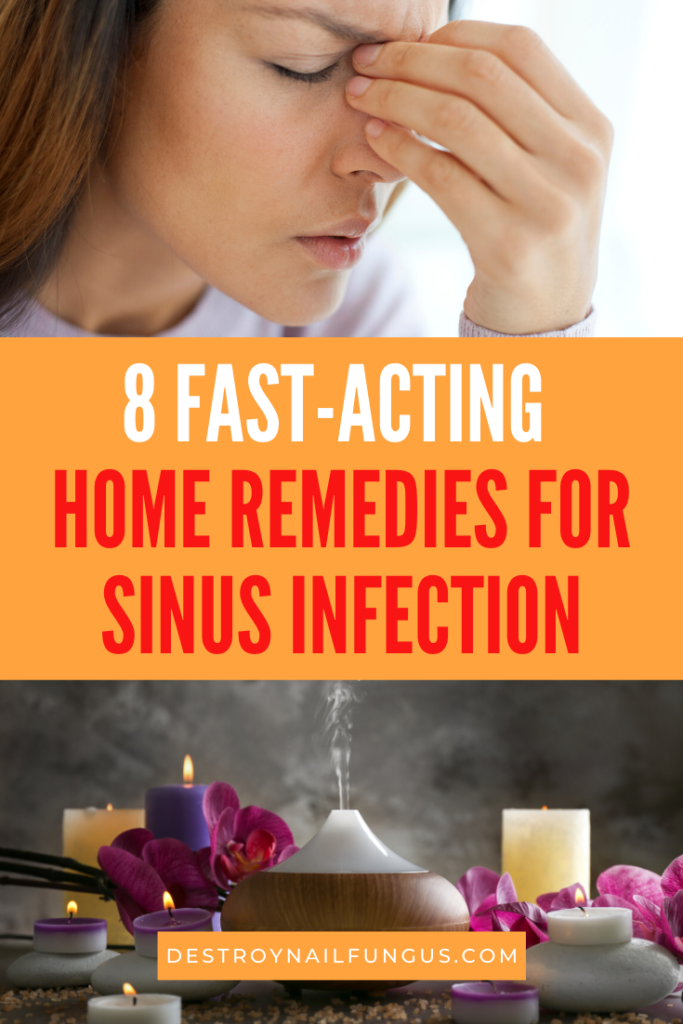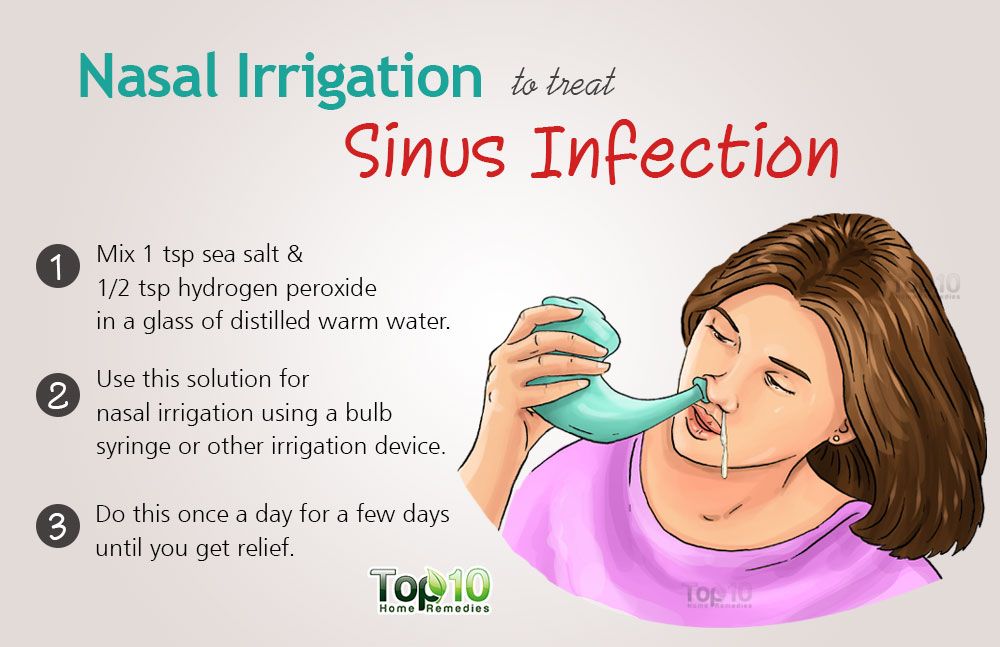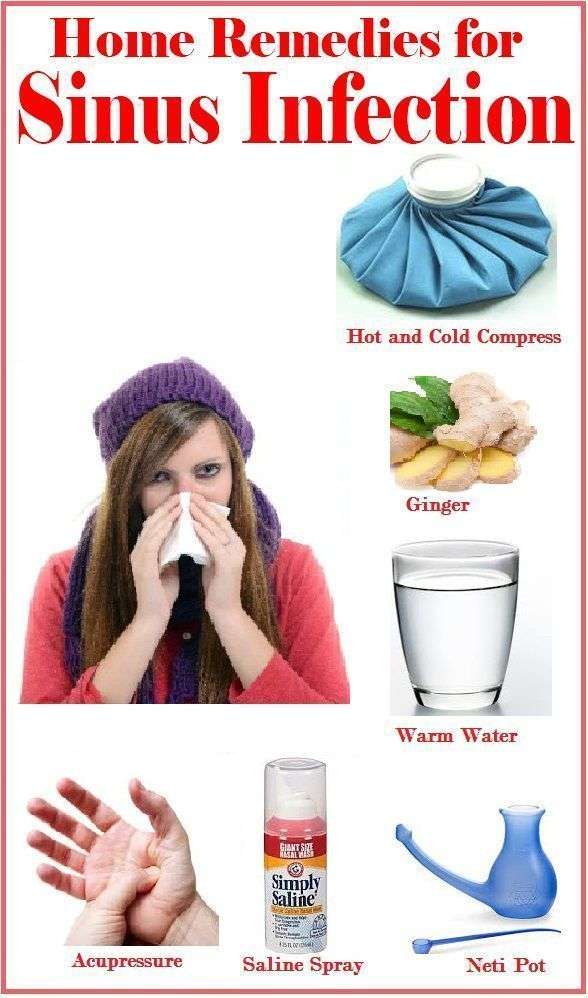What Are The Six Types Of Sinusitis And Sinus Infections
Sinusitis may be classified in several ways, based on its duration and the type of inflammation . The term rhinosinusitis is used to imply that both the nose and sinuses are involved and is becoming the preferred term over sinusitis.
- Acute sinus infection usually lasts less than 3-5 days.
- Subacute sinus infection lasts one to three months.
- Chronic sinus infection is greater than three months. Chronic sinusitis may be further sub-classified into chronic sinusitis with or without nasal polyps, or allergic fungal sinusitis.
- Recurrent sinusitis has several sinusitis attacks every year.
There is no medical consensus on the above time periods.
- Infected sinusitis usually is caused by an uncomplicated virus infection. Less frequently, bacterial growth causes sinus infection and fungal sinus infection is very infrequent. Subacute and chronic forms of a sinus infection usually are the result of incomplete treatment of an acute sinus infection.
- Noninfectious sinusitis is caused by irritants and allergic conditions and follows the same general timeline for acute, subacute, and chronic as infectious sinusitis.
Which Types Of Doctors Treat Sinusitis And Sinus Infections
- Many sinus infections can be treated by your primary care physician or an Internal Medicine doctor.
- However, it is not unusual to consult an ENT specialist, infectious disease specialist, or an allergist or immunologist.
- With some complex sinus infections, a surgeon who specializes in sinus surgery may be necessary to consult.
Nasal Irrigation With Sodium Bicarbonate
This home remedy for sinus infection involves the use of sodium bicarbonate, which can be an excellent option for relieving nasal congestion, reducing inflammation and eliminating secretion that caused plugged or runny noses. Sodium bicarbonate prevents the growth of bacteria in the sinuses and treats dryness within the nose, allowing for mucus to become looser.
Ingredients
- 1 nasal irrigator or a 20 ml syringe without the needle
- 1 teaspoon of sodium bicarbonate
- 1 cup of warm water
How to prepare
Mix the water with the sodium bicarbonate until fully dissolved and place in the irrigator or syringe. Lean your body forward, with your head tilted slightly to the side. Place the irrigator or syringe in the nostril and press until the solution comes out of the other nostril. It is important to open and breathe through your mouth while performing a nasal rinse.
You can repeat this 2 to 3 times per day in each nostril.
Another way to rinse your sinuses is to use 0.9% saline, which can be prepared at home with warm water and salt.
Don’t Miss: Antibiotic Drops For Eye Infection
Common Symptoms And Signs Of Sinus Infections
Signs and symptoms of sinus infections depend upon the sinuses that are affected, and whether the sinus infection is acute or chronic.
Common Sinus Infection Symptoms and Signs
- Stuffy nose or congestion
5 Chronic Sinusitis Symptoms
Chronic sinusitis may have many of the same symptoms as acute sinusitis, but the symptoms last longer or are more severe. In addition, people with chronic sinusitis may also experience multiple symptoms, for example:
Is There A Right Way To Blow Your Nose

If you have a stuffy nose, trying to force yourself to blow your nose could make it worse. The best thing to do is to blow one side of your nose at a time gently into a tissue. You might want to first use some type of nasal rinse to loosen any material in your nose before blowing. Make sure you dispose of the tissue and then clean your hands with soap and water or an antimicrobial sanitizer.
You May Like: Can Macrobid Treat A Sinus Infection
Schedule An Exam With A Local Ent
Are you tired of chronic, recurring sinus infections? Then its time to talk to a specialist about your treatment options. Our team provides the individualized care that you deserve, including one-on-one treatment with an ENT. We get to the root of the problem with an accurate diagnosis, then custom-design a treatment plan based on the unique needs of each patient.
Is It Possible To Prevent Sinus Infections Or Sinusitis
Currently, there are no vaccines designed specifically against infectious sinusitis or sinus infections. However, there are vaccines against viruses and bacteria that may cause some infectious sinusitis. Vaccination against pathogens known to cause infectious sinusitis may indirectly reduce or prevent the chance of getting the disease however, no specific studies support this assumption. Fungal vaccines against sinusitis are not available, currently.
If you are prone to recurrent bouts of a “yearly sinus infection” it may be important to consider allergy testing to see if this is the underlying cause of the recurring problem. Treatment of the allergy may prevent secondary bacterial sinus infections. In addition, sinus infections may be due to other problems such as nasal polyps, tumors, or diseases that obstruct normal mucus flow. Treatment of these underlying causes may prevent recurrent sinus infections.
Health Solutions From Our Sponsors
Don’t Miss: Yeast Infection On Your Period
What Happens If You Let A Sinus Infection Go Untreated
A sinus infection might start with annoying, inconvenient symptoms: congestion, discomfort, and sinus pressure. But dont assume these symptoms will go away on their own.
If left untreated, sinus infections can result in ongoing pain and discomfort that lasts for months. Sometimes, an untreated sinus infection can lead to serious complications that could have been prevented with early interventions.
The key to avoiding severe complications from an untreated sinus infection is to talk to an ENT as soon as possible. When you can see that the symptoms are lingering, then it might be time to book an appointment for a diagnosis and treatment plan.
What To Do For Sinus Pressure And Pain At Home
Here are the top 10 at-hometreatments to help ease your sinus pain and inflammation to get rid of your sinus infection faster.
Don’t Miss: Can You Get Antibiotics For A Sinus Infection
How To Cure A Sinus Infection
Sinus infections impact the lives of millions of Americans just like you. Together, we spend billions of dollars each year in over-the-counter and prescription medications to treat difficult symptoms. It is responsible for more than 16 million doctor visits that take away valuable time from work, friends, and family. The good news is that you donât have to continue suffering. There are cures for sinusitis that are safe, affordable, and ready for you.
Surgery For Chronic Sinusitis
Chronic sinusitis, which is an infection that lasts for 12 weeks or more, requires more intense treatment. You may need multiple rounds of antibiotics or, in rare cases, surgery.
Sinus surgery helps open up the nasal cavities so that the sinuses can drain better. The goal is to help prevent recurring, severe sinus infections in the future.
Most people dont need the surgery, but it may be recommended if you have repeated infections, have followed multiple courses of treatment with no improvement, or if you have a polyp in your nose that blocks your sinuses from draining.
When you feel symptoms of a sinus infection coming on, its best to begin with at-home treatment right away. Keep up with compresses, and avoid food or drinks that can make inflammation worse, including alcohol.
To learn more about treatment options for sinus infections and other sino-nasal disorders, please visit the UPMC Sino-Nasal and Allergy Center website.
Editor’s Note: This article was originally published on April 17, 2016, and was last reviewed on June 23, 2022
Don’t Miss: Can Ear Infections Clear Up On Their Own
Ginger Tea With Garlic
Ginger tea with garlic contains antioxidant, antibacterial and anti-inflammatory properties, due to the presence of substances like alicin and phenolic compounds, shogaol and zingerone . These substances help to treat symptoms of sinusitis like plugged nose, runny nose, sore throat and general malaise.
This tea also helps to strengthen the immune system and decreases the duration of the sinus infection.
Ingredients
- 3 cloves of garlic, peeled and sliced in half
- 1 cm of ginger root, or about 1/2 a teaspoon of powdered ginger
- 3 cups of water
- Honey to sweeten
How to prepare
Boil the water with the garlic. Removed from the heat, and add the ginger and honey. Strain the infusion and drink.
Ginger should not be consumed by people who take anticoagulants, and therefore should be avoided in the tea in these cases. During pregnancy, you should not exceed 1 g of ginger per day, for up to 4 days.
Mortality Rates Of Afirs

Studies show that the mortality rate of AFIRS is approximately 50% for those with the presence of an underlying health condition, including liver failure and changes in mental status. Better survival outcomes were seen in individuals with diabetes who underwent surgery or who received antifungal medication .
You May Like: Natural Antibiotics For Dental Infection
Whats Happening In My Body
Most sinus infections come from colds that start in the nose.
A lot of sinus infections are caused by coronaviruses.
These viruses replicate in the nose. Your immune system then kicks off an inflammatory response to help kill the virus. This can cause swelling in the sinuses, leading to your symptoms.
Unlike bacterial infections, viral infections dont respond to antibiotics and usually just need to run their course. But you dont have to take it lying down!
Balloon Sinuplasty: A Non
If you are one of the millions of Americans that battle frequent or long-term sinus infections and are seeking a sinusitis treatment that does not involve risky surgery, there is good news sinusitis treatment is available. Balloon Sinuplasty is another non-invasive sinusitis cure that works simply by expanding some or all three of the major nasal sinuses and allowing them to work naturally. This safe and simple sinus infection treatment can be done in the comfort of the office with our Board Certified Otolaryngologist, Dr. Sam Mathur. Schedule your appointment today and start your journey toward real and lasting sinus infection relief.
Our Locations
Also Check: Urinary Tract Infection Clear Up On Its Own
What Are The Sinuses
The sinuses are air-filled spaces near your nose, eyes, cheeks, and forehead. There are four different sinuses , and each is lined with mucous membranes. They include the ethmoid sinus, maxillary sinus, frontal sinus, and sphenoid sinus.
The primary function of the sinuses is to produce mucus that traps debris and pathogens . Doing so prevents them from being inhaled directly into the lungs.
If your sinuses are blocked, an infection may develop. This causes mucus to thicken and change in color , depending on the stage of infection.
Can You Get Rid Of A Sinus Infection Without Antibiotics
For most healthy people, even a moderate sinus infection can be cleared up if the nasal passages are allowed to drain. There are many different over-the-counter medications and home remedies that can provide relief from nasal congestion, and in some cases sinus infections can be handled by your bodys immune system.
Over-the-counter medications to treat sinus issues fall into a few different categories depending on your symptoms. Decongestants and antihistamines are designed to help alleviate the swelling that is preventing normal sinus drainage. Pain relievers such as ibuprofen can also help with reducing swelling and inflammation. Many cold and allergy relief drugs are a combination of two or three of these components.
In recent years, decongestant nasal sprays have become more popular, but increasing research is showing there can be dangers to this form of treatment. You should always be careful when using nasal sprays, and always follow treatment directions carefully. In most cases, you should not use a nasal spray for more than three days, as there is a risk of your nasal congestion getting worse over time with long-term use of sprays.
In addition to treating the sinus blockage itself, many people find it useful to take OTC pain relievers to alleviate the facial pain caused by swollen nasal passages. While pain medication such as ibuprofen will not reduce the amount of congestion, it can help you feel better while your sinus cavities heal.
Don’t Miss: Where To Go For Bladder Infection
Dont Use Tap Water For Nasal Irrigation: Use Saline Or Diy Solution Instead
Nasal irrigation, or flowing a saltwater solution into the sinus passages, is an effective way to treat sinusitis. A small number of studies, including one published in 2016 in the Canadian Medical Association Journal, has found irrigation does improve sinus symptoms.
But it is critical that you use water that has been sterilized, rather than liquid taken directly from your sink or shower. This is because in some cases people using tap or shower water have introduced a dangerous parasite into their sinuses.
The U.S. Centers for Disease Control and Prevention warns that, very rarely, people using nasal irrigation with tap water have become infected with the dangerous parasite Naegleria fowleri. These organisms may not cause harm if swallowed because stomach acid wipes them out, but they can live and thrive in the warren of passageways of your sinuses.
To avoid this potential risk, purchase sterile saline sprays, from Simply Saline or other brands, or make your own saline solution using water labeled distilled, or boiling your tap water for three to five minutes. If youâre using boiled tap water, cool it to lukewarm and store any extra water in a clean, closed container for use the following day .
What Decongestants And Nasal Sprays Soothe Or Cure Sinus Infections Or Sinusitis
Taking decongestants and mucolytics orally may be helpful in assisting drainage of sinus infection.
The treatment of chronic forms of sinus infection requires longer courses of medications, such as Augmentin, and may require a sinus drainage procedure. This drainage typically requires a surgical operation to open the blocked sinus under general anesthesia. In general, antihistamines should be avoided unless it is felt that the sinusitis sinus infection is due to allergies, such as pollens, dander, or other environmental causes.
It is likely that the use of a topical nasal steroid spray will help reduce swelling in the allergic individual without the drying that is caused by using antihistamines although both are occasionally used. Oral steroids may be prescribed to reduce acute inflammation and to help with chronic inflammation in cases with or without polyps and in allergic fungal sinusitis.
In many people, allergic sinusitis develops first, and later, bacterial infection occurs. For these individuals, early treatment of allergic sinusitis may prevent the development of secondary bacterial sinusitis.
In rare instances or in natural disasters, fungal infections may develop in debilitated people. Death rates of 50%-85% have been reported for patients with these sinus infections. Treatment relies on early diagnosis followed by immediate surgical debridement, antifungal drugs, , and stabilizing any underlying health problem such as diabetes.
You May Like: How To Take A Zpack For Sinus Infection
Types Of Sinus Infections
During your visit with an ENT, its crucial to identify the potential causes of your sinus infections. Identifying the root of your health concerns helps the doctor design an optimal treatment plan to alleviate your pain.
Its common for sinus infections to be caused by a viral infection, which means that you can use at-home care for a few days. The symptoms will usually clear up in a week to 10 days, with over-the-counter remedies to help you stay comfortable.
Blocked, congested sinuses can also be the perfect breeding ground for the growth of bacteria. For example, there are times when it starts as a viral infection, then develops into a bacterial sinus infection.
Another potential cause of sinus discomfort is a fungal infection. Treatment for this type of condition may require different kinds of medication or surgery to clear up the infection.
Keep in mind that certain health conditions might contribute to the risk of sinus infections but dont cause the infections directly:
These health issues result in sinus blockages, which creates the conditions for an infection to form.
How Sinus Infection Occurs

So now lets know how this sinus infection occurs. As you know the sinus works for the production of mucus inside them so that they can pass the mucus to the nose and the nose become lubricated in a general state but during an infection such as common cold flu or just an allergy, the sinuses the walls of the sinuses get swelled up and the way of sinuses through which it is passing the mucus to the nose get blocked and the mucus which is secreted by the sinuses just collapsed in that small area. So, due to the collection of the mucus in that area, the mucus starts pressuring the walls of our cheeks the walls of our forehead thats why the symptoms such as headache fever, and the blockage or the congested nose occur during a sinus infection.
There are exceptional cases of tumor development in our nose or just the nostril lining that divides the nostrils in two parts will go in aside. These are exceptional cases and also at the time, the viruses and bacteria start to infect the sinuses. The filled up mucus means that the bacteria and viruses start growing in that sinus spaces in which the mucus is already filled up and just they are starting to degrading that mucus thats like a stagnant water situation as i told at the beginning thats when the water body gets stagnant then lots of microorganisms start to develop in it and start to degrading that area so as such occurs with our sinuses.
Don’t Miss: Antibiotics For Strep Skin Infection